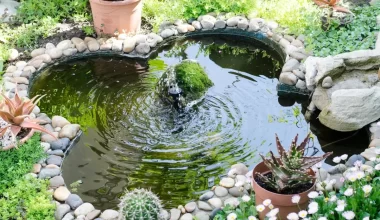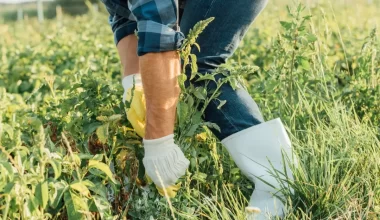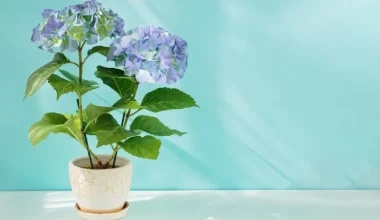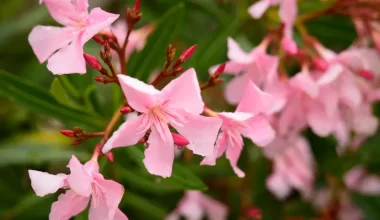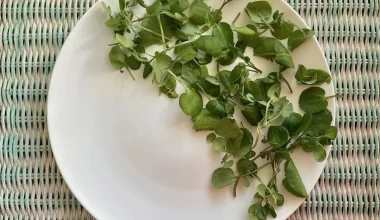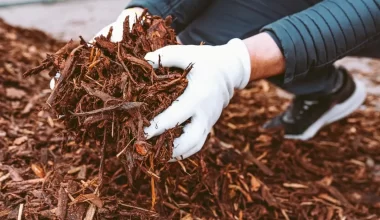Posted on Nov 25, 2023 at 4:00 pm by James A
You probably know that some plants can be dangerous to our health.
Among them, the euphorbia – an ornamental plant widely spread in our gardens – secretes a caustic sap that can cause burns to the eyes and skin.
Table of Contents
How to recognize a euphorbia and its characteristics?
The euphorbia is a plant belonging to the Euphorbiaceae family, which has more than 2000 different species. Euphorbias are very diverse plants in terms of appearance, ranging from annual herbaceous plants to shrubs and even cacti. Here are some common characteristics to help you identify them:
- Alternate or opposite leaves
- Often petal-less flowers, grouped in an inflorescence called cyathium
- Presence of a milky, thick, and viscous sap
The harmful effects of euphorbia sap on health
Euphorbia sap contains irritating and toxic substances, including diterpene esters and phorbols. When it comes into contact with the skin, it can cause inflammatory reactions such as:
- Redness
- Swelling
- Blisters
- Itching
If the sap reaches the eyes, the consequences can be more serious. Symptoms include a sensation of intense burning, tearing, photophobia (sensitivity to light), and sometimes even temporary loss of vision. In some cases, ocular lesions can be permanent.
How to protect yourself from euphorbia sap while gardening?
To avoid any contact with this potentially dangerous sap, here are some practical tips to follow:
- Wear thick rubber gloves to handle euphorbias
- Use appropriate tools to cut or prune plants without crushing them
- Thoroughly wash your hands after handling a euphorbia, even if you were wearing gloves
- Keep children and pets away from these plants
What to do in case of accidental exposure to euphorbia sap?
If you or someone you know is exposed to euphorbia sap, here are the measures to take:
- In case of skin contact: rinse the affected area thoroughly with cold water and soap for at least 15 minutes. Then apply a soothing cream and consult a doctor if symptoms persist or worsen.
- In case of eye contact: immediately rinse the affected eye with cold water for at least 15 minutes, keeping the eyelids apart. Quickly consult an ophthalmologist or go to the ophthalmic emergency department.
- In case of ingestion: do not induce vomiting and immediately consult a doctor or a poison control center.
Now that you know the dangers associated with euphorbia sap, you can fully enjoy your garden safely. Feel free to share this information with your gardening friends to raise awareness about the risks posed by certain plants and thus preserve their health and that of their loved ones.

